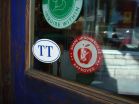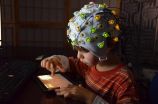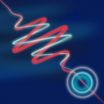(Press-News.org) In a previous randomized controlled trial, Stanford University researchers developed two curricula for Girl Scouts to use energy more efficiently: one on energy use at home, and the other in transportation and food. Both courses were effective for girls in the short term, and the home energy course was effective for girls in the long term and for parents in the short term.
Subsequently, the Northern California Girl Scouts began disseminating the programs via manuals and reusable materials, but that method of disseminating the programs has not lead to widespread use.
On Dec. 19, at 8:15 a.m. PT, Stanford researchers will describe deployment of the curricula to Girl Scout troop leaders via a massive open online course (MOOC). The talk will take place at the fall meeting of the American Geophysical Union in San Francisco, Moscone West, Room 3005.
The MOOC approach has several advantages:
Videos on teaching practice, behavior management techniques and the relevant social cognitive theory for troop leaders
Online discussion with other troop leaders
Feedback on teaching, use of components, mastery of curriculum and confidence
Downloadable videos, materials for activities, badges and completion certificates
Delivery of embedded social media, online mastery activities and quizzes for the girls
Self-paced learning for parents
The MOOC distribution of the Girls Learning Energy & Environment is itself a study, because it is new for the audience of Girl Scout troop leaders and primary target subjects of 10-13 year olds. The researchers have access to the MOOC experience, platform and analytical tools at Stanford. They are exploiting user testing and piloting to refine their MOOC.
The investigators will launch the first MOOC in northern California and use MOOC analytics to study its success. They will then launch the refined MOOC to Girl Scout troop leaders regionally or nationally. Overall, the project aims to simulate and advance in-person train-the-trainers technologies.
The AGU talk will be presented by the following Stanford researchers:
Victoria Christine Rodriguez, PhD candidate, education: http://www.linkedin.com/pub/victoria-rodriguez/66/276/40b
Nicole Ardoin, assistant professor, education: https://profiles.stanford.edu/nicole-ardoin
June Flora, senior research scientist, https://www.linkedin.com/pub/june-flora/9/b92/820
Tom Robinson, professor of pediatrics: https://profiles.stanford.edu/thomas-robinson
INFORMATION:
AGU abstract (GC51G-02): http://agu.confex.com/agu/fm14/meetingapp.cgi#Paper/27833
[Boston, MA December18, 2014] Parents of children involved in an elementary school-based community intervention to prevent obesity appear to share in its health benefits. A new analysis of Shape Up Somerville: Eat Smart Play Hard™ shows an association between being exposed to the intervention as a parent and a modest decrease in body mass index (BMI) compared to parents in two similar control communities. The study led by researchers at the Friedman School of Nutrition Science and Policy at Tufts University and the Centers for Disease Control and Prevention (CDC) ...
University of Chicago developmental neuroscientists have found specific brain markers that predict generosity in children. Those neural markers appear to be linked to both social and moral evaluation processes.
There are many sorts of prosocial behaviors. Although young children are natural helpers, their perspective on sharing resources tends to be selfish. Jean Decety, the Irving B. Harris Professor of Psychology and Psychiatry, and Jason Cowell, a postdoctoral scholar in Decety's Child NeuroSuite lab, wanted to find out how young children's brains evaluate whether ...
Australian scientists have developed a model for oil palm cultivation, aimed at helping growers of the crop maximize the yields of their plantations, while minimizing detrimental environmental impacts.
The model was recently published in the journal Environmental Modeling & Software.
"Oil palm has become a major crop in the tropics, cultivated on more than 39 million acres of land," co-author Dr Paul Nelson of James Cook University (JCU) said.
"Demand for the product continues to grow, and the industry is expected to keep expanding in the foreseeable future.
"At ...
Scientists at A*STAR's Institute of Medical Biology (IMB) and Institute of Molecular and Cellular Biology (IMCB) have identified a genetic pathway that accounts for the extraordinary size of the human brain. The team led by Dr Bruno Reversade from A*STAR in Singapore, together with collaborators from Harvard Medical School, have identified a gene, KATNB1, as an essential component in a genetic pathway responsible for central nervous system development in humans and other animals.
By sequencing the genome of individuals of normal height but with a very small head size, ...
Here's a nice surprise: quantum physics is less complicated than we thought. An international team of researchers has proved that two peculiar features of the quantum world previously considered distinct are different manifestations of the same thing. The result is published 19 December in Nature Communications.
Patrick Coles, Jedrzej Kaniewski, and Stephanie Wehner made the breakthrough while at the Centre for Quantum Technologies at the National University of Singapore. They found that 'wave-particle duality' is simply the quantum 'uncertainty principle' in disguise, ...
Misfiring of the brain's control system might underpin compulsions in obsessive-compulsive disorder (OCD), according to researchers at the University of Cambridge, writing in the American Journal of Psychiatry.
The research, led by Dr Claire Gillan and Professor Trevor Robbins (Department of Psychology) is the latest in a series of studies from the Cambridge Behavioural and Clinical Neuroscience Institute investigating the possibility that compulsions in OCD are products of an overactive habit-system. This line of work has shifted opinion away from thinking of OCD as ...
The memory and walking speeds of adults who have lost all of their teeth decline more rapidly than in those who still have some of their own teeth, finds new UCL research.
The study, published in the Journal of the American Geriatrics Society, looked at 3,166 adults aged 60 or over from the English Longitudinal Study of Ageing (ELSA) and compared their performance in tests of memory and walking speed. The results showed that the people with none of their own teeth performed approximately 10% worse in both memory and walking speed tests than the people with teeth.
The ...
Hormone replacement therapy (HRT) is the most effective treatment for menopausal symptoms, in particular for younger women at the onset of the menopause, suggests a new review published today (19 December) in The Obstetrician & Gynaecologist (TOG).
The review highlights that menopausal symptoms, including hot flushes and night sweats are common, affecting around 70% of women for an average of 5 years but may continue for many years in about 10% of women.
Every woman experiences the menopause differently; some experience one or two symptoms mildly while others have ...
Less than half of UK prescriptions for antipsychotic drugs are being issued to treat the serious mental illnesses for which they are mainly licensed, reveals research published in the online journal BMJ Open.
Instead, they may often be prescribed 'off label' to older people with other conditions, such as anxiety and dementia, despite the greater risk of potentially serious side effects in this age group, the findings indicate.
The researchers analysed family doctors' prescribing patterns for first and second generation antipsychotic drugs across the UK between 2007 ...
Almost half of teen drivers killed on US roads in the past few years were driving vehicles that were 11 or more years old, and often lacking key safety features, reveals research published online in Injury Prevention.
Parents, who are usually the ones stumping up for a car, could be putting their children's lives at risk by focusing on cost, warn the researchers.
The prevalence of fatal road traffic collisions among US teens has fallen sharply since 1996. Yet per mile driven, rates of police-reported and fatal crashes involving teens are around three times those for ...


